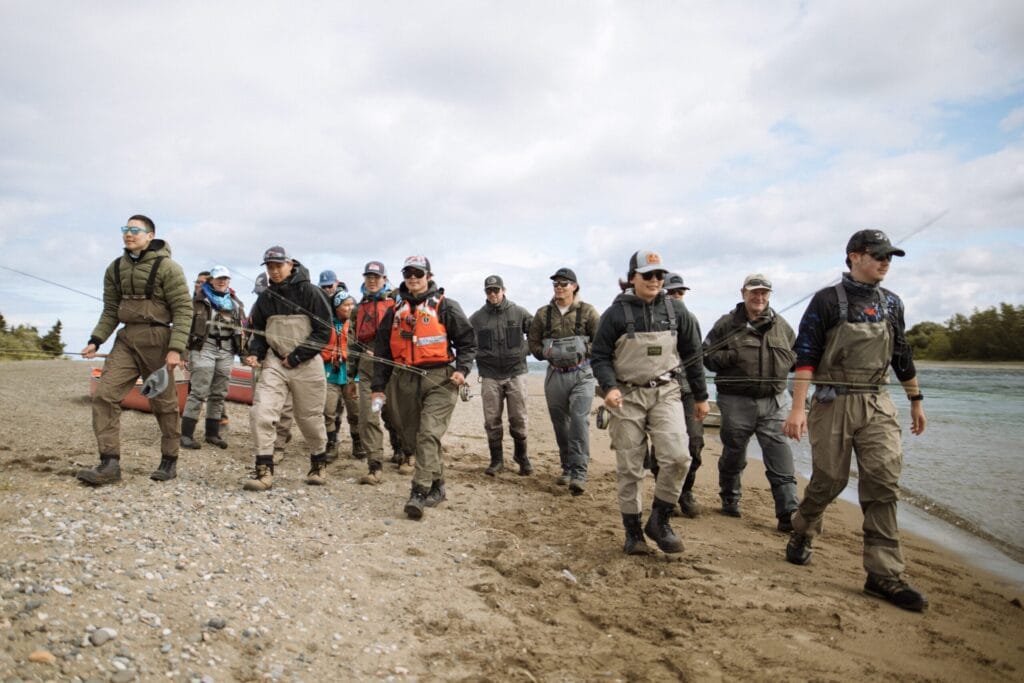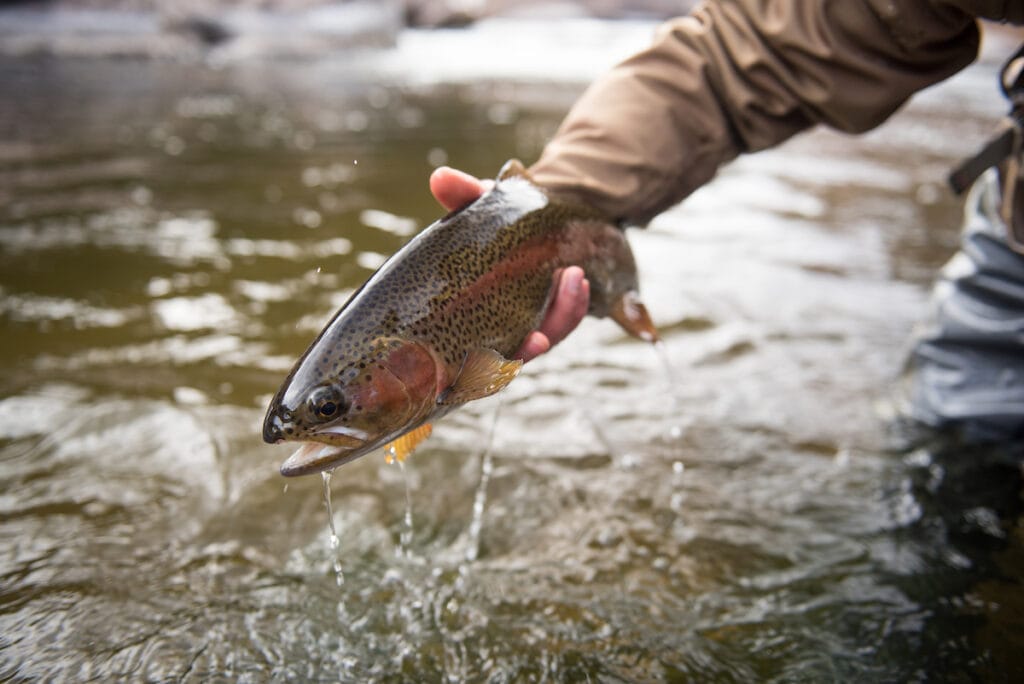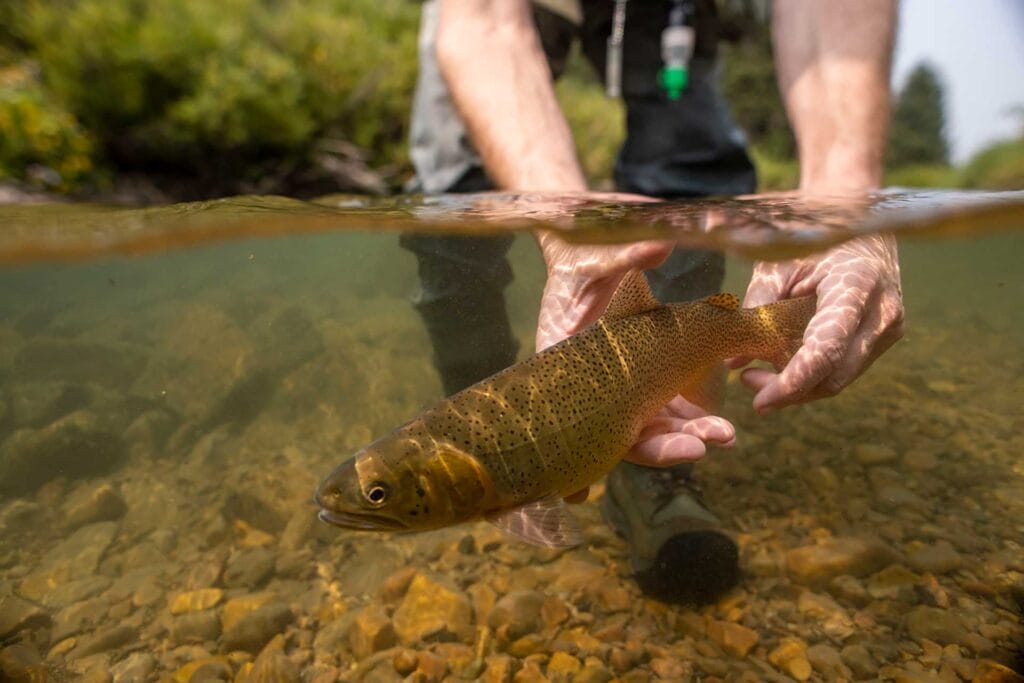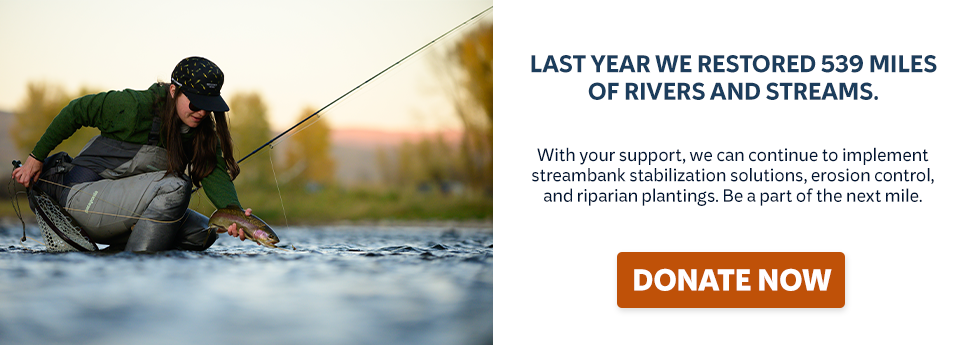How does one begin to explain “respect” in the context of a leisure pursuit—fly fishing—that largely revolves around sticking a sharp hook in an animal’s mouth, and then pulling it around by the face, only to release it and let it go, maybe having snapped a photo or two for posterity… or to make a magazine story… or share on an Instagram feed?
What’s respectful about any of that?
I came face-to-face with this ethical dilemma about 15 years ago at the Bristol Bay Guide Academy in Alaska, when I was there to instruct indigenous youth on the ins and outs of sport fishing for salmon and trout. The goal (a noble one, I still believe) was to explain how sport fishing could be a sustainable opportunity for younger native people to stay connected with their communities, lands and waters, instead of moving away.

At one dinner table conversation, a particularly bright Native American teenager boldly looked me straight in the eye and asked if catching a salmon, only to release it, wasn’t akin to “playing with your food.”
He went on to explain how he had been brought up in a tradition of depending on wild creatures for subsistence. To wit, he eloquently explained how he felt that the moose he had hunted, shot and killed the year before had “presented itself” and was to be revered and thanked for the offering. It was a spiritual thing. And so it was, also, with salmon fishing, be that by gill net or rod and reel.
I looked right back at him and told him that I didn’t have a perfect answer to his worthy question. I respected him too much to say otherwise.
But that prompted my thinking to evolve, and now I would say that different people who grow up in different places in the fly fishing world inevitably have different ideals. And what is most important, is to respect other people for how they feel and why they feel that way, regardless of where they came from.
I grew up thinking that the only way to truly demonstrate your prowess as an angler was to have a gutted trout splayed on a paper plate under plastic wrap in the refrigerator for all to admire (and measure) before breakfast.
But the more I fished, the more I absorbed the notion of what the legendary Lee Wulff put forth, way back in 1936 when he said that “Game fish are too valuable to be caught only once.”
So over time, almost reluctantly at first, I started adopting the “catch-and-release” philosophy. In doing so, I thought I was on a straighter path toward respect—respect for the fish, which I would admire for a moment, and then let live… also respect for other anglers, because I didn’t want to take more than my share of cookies out of the cookie jar (despite what the regulations might have outlined)… and most of all, respect for the river ecosystem itself, because I thought that if I could enjoy a day of splendor in a wild place, only to leave it basically as I found it when I left; that was the best thing to do.

Having said all of that, it now bothers me to hear phrases like “rippin’ lips” and “chasing hogs.” I am saddened by the consumption craze—wherein it’s all about “how many” or “how big” no matter the methods used, no matter the season, no matter the water temperatures, and so on. I think that has led to a deeply unfortunate “industrialization” of fly fishing in many places.
But that isn’t the real essence of fly fishing. That brand of fly fishing is so far divorced from Norman Maclean’s inspiration behind A River Runs Through It… or Roderick Haig Brown’s A River Never Sleeps… or anything Thomas McGuane, Jim Harrison or John Gierach ever wrote, it’s sad. And yes, it’s disrespectful.
But I have faith that, in the long run, the fly-fishing community will adjust itself. It always does. And respect will rule the day. “Leave no trace” should be the floor, not the ceiling. “How can I make his better for other anglers?” will be a mantra, not a lofty ambition.

If you simply take the time to admire the beauty of every trout or salmon you catch… gaze with care at the unique, beautiful colorations on any trout… pause to understand the true natural miracle that a salmon or steelhead landed in natal waters really represents… well… you cannot help but land on a deep-seeded feeling of wonder, appreciation… and respect.
Bottle those feelings. Endeavor to share them with others.
And therein, you might just find respect in fly fishing.



